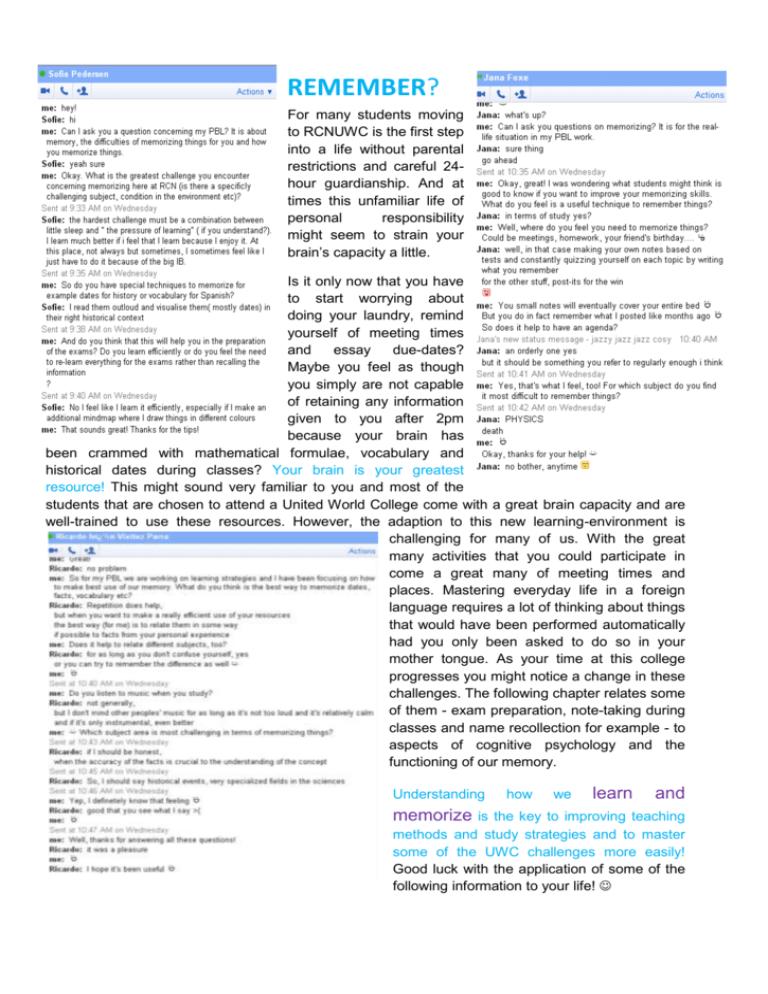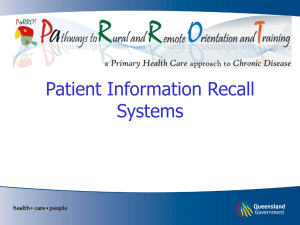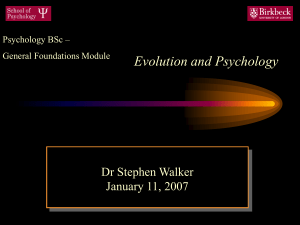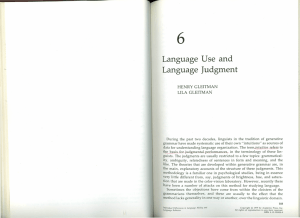memory 2
advertisement

REMEMBER? For many students moving to RCNUWC is the first step into a life without parental restrictions and careful 24hour guardianship. And at times this unfamiliar life of personal responsibility might seem to strain your brain’s capacity a little. Is it only now that you have to start worrying about doing your laundry, remind yourself of meeting times and essay due-dates? Maybe you feel as though you simply are not capable of retaining any information given to you after 2pm because your brain has been crammed with mathematical formulae, vocabulary and historical dates during classes? Your brain is your greatest resource! This might sound very familiar to you and most of the students that are chosen to attend a United World College come with a great brain capacity and are well-trained to use these resources. However, the adaption to this new learning-environment is challenging for many of us. With the great many activities that you could participate in come a great many of meeting times and places. Mastering everyday life in a foreign language requires a lot of thinking about things that would have been performed automatically had you only been asked to do so in your mother tongue. As your time at this college progresses you might notice a change in these challenges. The following chapter relates some of them - exam preparation, note-taking during classes and name recollection for example - to aspects of cognitive psychology and the functioning of our memory. Understanding memorize how we learn and is the key to improving teaching methods and study strategies and to master some of the UWC challenges more easily! Good luck with the application of some of the following information to your life! MEMORY ACQUISITION Have you ever felt as though you were unable to store the information you just got? The brain has the capacity to store a big amount of what you need to remember over a long time period. Homework. The birthday of your roommate. An important meeting. The deadline of an essay due in three weeks. The ratio of rescue breaths and cardiac massage. But this process of information storage does not always seem to be performed in a successful manner. Understanding how the brain transfers information from the working memory / shortterm memory to the long-term memory will help you master everyday IB challenges – including exam preparation. Working memory Long-term memory •instant access to the information you are using right now •continuing storage of information you might want to use later •avoid distraction by unnecessary infomation Research shows that ‘the road to long-term memory necessarily passes through working memory’1. But what is it that moves information from the working memory platform to the long-term storage? It has become clear that rehearsing, the process through which items are kept in working memory for a longer time period, makes it more likely for this information to be stored in the long-term memory later on. However, this does not mean that the mere exposure to the same piece of information or rote repetition over an extended period of time promotes long-term memory. Rehearsing is no automatic process and you have to actively engage in it. The transfer of information from working memory to long-term memory, the so called encoding, requires that the information you deal with is changed into a format which can effectively be stored. Psychologists have found out that the effectiveness of encoding increases with the depth at which the information you want to store is processed. This means that you need to ‘think about the to-be-remembered materials in some fashion.’1 This engagement does not have to involve difficult reflection. Think of the following example as an illustration of different levels of depth: 1 Gleitman, Henry: Psychology/Henry Gleitman, Daniel Reinsberg, James Gross 7th edition, W.W. Norton & Company, Inc, New York, 2007, p.236 If you want to remember vocabulary It is least effective to simply look at the word and remember its physical appearance (“Is it printed in capital letters?”). It is more effective to think about the word’s sound (“Does it rhyme with _____?”). It is most effective to think about the word’s meaning (“Would it fit into the sentence: The girl placed the ______ on the table?”)1 It is useful to think about memory in terms of interconnected ideas. In order to understand something, we have to understand how one piece of information links to the other. By establishing these associations, you will be able to recall the stored information more easily because various situations act as stimuli for your memory. Methods to interconnect – Mnemonics Establishing memory connections is a very safe way to long-term memory. The methods that help you perform these associations of various pieces of information, so called mnemonics, can be visual, verbal, kinaesthetic (movement) or auditory. Many of the tricks to memorize something work despite (or possibly because) of being illogical. This is because the human brain memorizes surprising, spatial, personal, sexual or humorous information much more easily than arbitrary information.2 You are therefore encouraged to think of your own creative mnemonics. Here are some examples from RCNUWC students: Student a: I am not a Chemistry student, but my roommate and I had so much fun when we found out about a passage in her chemistry book where it says: “Cations are always Pussy-tive”. We are both fans of the Pussycat dolls, so this is a great mnemonic and even I won’t forget that Cations are always positively charged… Student b: The sequence of rainbow colors can easily be memorized with this code: ROYGBIV. Why? It stands for the meaningless but easy-toremember phrase Royal Great Britain the Fourth. GB is of course the acronym for Great Britain and IV can be seen as the Greek letter 4. Very useful in Biology and the study of Photosynthesis… ;-) 2 http://en.wikipedia.org/wiki/Mnemonic, 31.1.2011 You might also find it helpful to make use of a technique which is known as method of loci. ‘This method requires the learner to visualize each of the items she wants to remember in a different location (locus).’ When trying to remember something ‘each location is mentally inspected and the item that was placed there in imagination’ 3 is remembered. It is important to not leave location and object unrelated to each other, but to imagine one interacting with the other! Psychologists know relatively little about how exactly information is stored in the longterm memory. But they are sure that memories are arranged in groups. 4 Take advantage of this mechanism by organizing your information in clusters/groups. Here is an example of Clustering: Try to remember each of these words: door, red, chair, roof, green, table, bed, yellow, cellar, purple, window, desk, brown If you organize them in the three categories “House”, “Color” and “Furniture” remembering them will be easier! Always remember: Actively engage with what you want to store in your long-term memory! Make memory connections and interrelate what you know with what is new! Create creatvie mnemonics! Structure and organize the information you are studying. 3 Gleitman, Henry: Psychology/Henry Gleitman, Daniel Reinsberg, James Gross 7th edition, W.W. Norton & Company, Inc, New York, 2007, p. 243 4 http://psychology.about.com/od/cognitivepsychology/a/memory.htm, 31.1.2011 MEMORY RETRIEVAL We all know the situation: A stuffy exam room, the crucial paper in front of you. You are familiar with the type of questions that are being asked but your brain seems blank. Have you lost your memory? Most likely you haven’t. This chapter aims at introducing you to some of the basic forms of retrieval – ways of accessing your memory successfully when it is really needed. ‘Failures to remember can happen for many reasons, including (as we have already discussed) inadequate encoding.‘5 But often it occurs that one does not remember something that had clearly been learned in a particular situation (for example during an exam) and is only able to recall the information in another situation (for example after the exam). Our brain recalls information from the long-term memory more easily when it is stimulated by retrieval cues. Evidence for the working of these clues that help I have no cue! you recall things lies in the common “Tip-of-thetongue” experience. People our age experience it at least once a week (Schacter, 2001), so don’t worry too much if you sometimes don’t seem to recall the name of a close friend. A cue could be to tell you that his name rhymes with feet. It might help you remember that he is called Pete. Retrieval cues work best if they re-create the context in which we learned the to-beremembered information. Looking back at the earlier chapter on memory acquisition the reason for this becomes evident: ‘Learning, we suggested, is essentially a process of creating memory connections that link the to-be-remembered material to other things you already know. When the time comes for retrieval, these same connections serve as retrieval paths, leading you back to the desired information.’1 ‘If an individual focused on the sounds of words during learning, this established a corresponding set of memory connections – a connection, for example, between dog and log. That connection will be useful later if the person is asked the question about rhymes: If she thinks about log, the connection will guide her thoughts to the target word, dog.’ 5 Gleitman, Henry p.246 Image Homer: brooklyning.com, 31.1.2011 Image blackout: http://www.mylot.com/w/image/2269708.aspx, 31.1.2011 Retrieval cues work if they enable you to re-create the mental context in which you studied. Such re-creation not only concerns study methods but also the imaginary return to the place you studied in. But: a return to physical circumstances of learning only helps because it re-creates the mental context of learning. So in an exam situation thinking about the classroom you studied what the question is asking for won’t serve as a cue. You need to think about how the place looked, how it made you feel, how it smelled etc. ‘If you change the physical context without changing your mental perspective, the physical relocation has no effect.’6 Here is another example of how the re-creation of a context cues memory: ‘Participants in one study were asked to read an article (…); half read the article in a quiet setting, half read it in a noisy environment. When tested later, those who read the article in quiet did best if they were tested in quiet; those who read it in a noisy environment did best if tested in a noisy setting (Grant et al.; 1998)’ Gleitman, Henry: Psychology/Henry Gleitman, Daniel Reinsberg, James Gross 7th edition, W.W. Norton & Company, Inc, New York, 2007, p.247 Forgetting is an inherent part of everyday life and the incapacity to forget is associated with mental disorders such as special forms of autism. Not to being able to remember everything is particularly useful in social life but really not when it comes to more inflexible commitments such homework, exams or meetings. In most the cases information that is forgotten is not lost but simply not accessible. This can be caused by the interference of several events, meaning that the material you want to store in your long-term memory is essentially incompatible with other things that need to be remembered (see example on the left). Not all learning produces interference. ‘No interference is observed, for example, between dissimilar sorts of material – learning to skate does not interfere with one’s memory for irregular French verbs. (…) If the new learning is consistent with the old, no interference is observed; in fact, the subsequent learning helps memory, rather than hindering it.’7 If you consider these scientific Learning more findings during your studies, you’ll algebra helps you have fewer problems with accessing remember the your memory when you need it! You might not be able to memorize a list of Spanish B words for next week’s test if you have recently studied for Chinese ab initio and attended the Arabic EAC, too. It will be easier to remember your vocabulary if you focus on Spanish and Maths for today, instead of preparing for tests in three new and very different languages! algebra you mastered last year! 6 7 Gleitman, Henry p.247 Gleitman, Henry p.250 Always remember: This is what professionals advise you to do if you want to improve your memory skills! Try to be aware of how you study in order to find the retrieval-path back later! Create cues. 1. Focus your attention on the materials you are studying. If you are experiencing diffiulties with recalling information during your exam, try to re-create your mental context during the preparation! During a day of exam preparation, focus on subjects which aren’t related to closely! New information reinforces what you already know about the subject! Attention is one of the major components of memory. In order for information to move from short-term memory into longterm memory, you need to actively attend to this information. Try to study in a place free of distractions such as television, music and other diversions. 2. Avoid cramming by establishing regular study sessions. According to Bjork (2001), studying materials over a number of session's gives you the time you need to adequately process the information. Research has shown that students who study regularly remember the material far better than those who did all of their studying in one marathon session. 3. Structure and organize the information you are studying. Researchers have found that information is organized in memory in related clusters. You can take advantage of this by structuring and organizing the materials you are studying. Try grouping similar concepts and terms together, or make an outline of your notes and textbook readings to help group related concepts. 4. Utilize mnemonic devices to remember information. Mnemonic devices are a technique often used by students to aid in recall. A mnemonic is simply a way to remember information. For example, you might associate a term you need to remember with a common item that you are very familiar with. The best mnemonics are those that utilize positive imagery, humor or novelty. You might come up with a rhyme, song or joke to help remember a specific segment of information. 5. Elaborate and rehearse the information you are studying. In order to recall information, you need to encode what you are studying into longterm memory. One of the most effective encoding techniques is known as elaborative rehearsal. An example of this technique would be to read the definition of a key term, study the definition of that term and then read a more detailed description of what that term means. After repeating this process a few times, your recall of the information will be far better. 6. Relate new information to things you already know. When you are studying unfamiliar material, take the time to think about how this information relates to things that you already know. By establishing relationships between new ideas and previously existing memories, you can dramatically increase the likelihood of recalling the recently learned information. 7. Visualize concepts to improve memory and recall. Many people benefit greatly from visualizing the information they study. Pay attention to the photographs, charts and other graphics in your textbooks. If you do not have visual cues to help, try creating your own. Draw charts or figures in the margins of your notes or use highlighters or pens in different colors to group related ideas in your written study materials. 8. Teach new concepts to another person. Research suggests that reading materials out loud significantly improves memory of the material. Educators and psychologists have also discovered that having students actually teach new concepts to others enhances understanding and recall. You can use this approach in your own studies by teaching new concepts and information to a friend or study partner. 9. Pay extra attention to difficult information. Have you ever noticed how it's sometimes easier to remember information at the beginning or end of a chapter? Researchers have found that the position of information can play a role in recall, which is known as the serial position effect. While recalling middle information can be difficult, you can overcome this problem by spending extra time rehearsing this information. Another strategy is to try restructuring the information so it will be easier to remember. When you come across an especially difficult concept, devote some extra time to memorizing the information. 10. Vary your study routine. Another great way to increase your recall is to occasionally change your study routine. If you are accustomed to studying in one specific location, try moving to a different spot to study. If you study in the evening, try spending a few minutes each morning reviewing the information you studied the previous night. By adding an element of novelty to your study sessions, you can increase the effectiveness of your efforts and significantly improve your long-term recall. References: Bjork, D. (2001, March). How to succeed in college: Learn how to learn. APS Observer, 14(3), 9.










